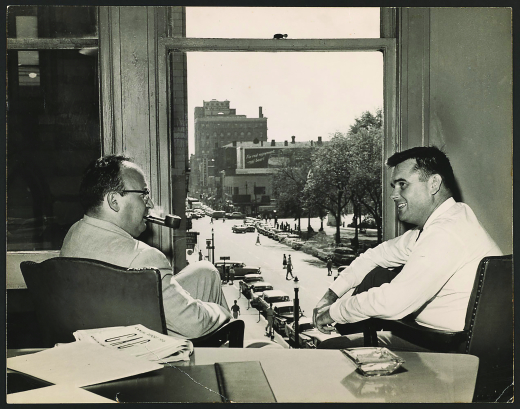When Logue arrived in the South Bronx and was faced with the challenge of redeveloping the devastated Charlotte Street neighborhood with a minimum of public resources, he abandoned his previous prioritizing of creative design and searched for another approach that would appeal to the prospective residents and private financers whose buy-in he now needed. Charlotte Gardens, a suburban-type development of ninety conventional, architecturally uninspired, ranch houses was groundbreaking only in its use of prefabricated construction. To Logue’s credit, although he knew that he was inviting condemnation from the planners and architects whose admiration he had long cultivated, he chose to put a viable future for Charlotte Street above his own architectural predilections and personal reputation. In the realm of design, as in the way he learned to consult more broadly with community members, Logue adjusted to the requirements of the moment and brought flexibility rather than ideological rigidity to his work.
As opportunities allowed it, Ed Logue enjoyed being what I have described as a rebel in the belly of the establishment beast, using his powerful position to pursue his goals and, if necessary, impose his own standards and values on projects and people. But over time Logue learned that this role did not always serve him well. At the UDC, when Logue’s social mission sharply conflicted with the economic interests of his establishment sponsors, he was ousted. In the South Bronx, by necessity, Logue accomplished more as an outsider operating from the city’s far north reaches than as a mouthpiece of the political authorities downtown. At the height of his influence, Logue’s insider stance likely had blinded him to some of the limitations of federal urban renewal that only in later life did he fully understand. But although his passage from star performer to cast extra was not easy, Logue’s ability to shift ultimately helped him preserve his sense of self-worth and not withdraw into defeatism or alienation. Even if out of the mainstream toward the end of his career, Logue remained effective.
NOTES
1. Edward J. Logue, Interview by Morton Schussheim, May 24, 1995, Pioneers in Housing Oral History Project, Library of Congress, Washington, DC, transcript, 39.
2. Logue to Herbert A. Tessler, memorandum, March 19, 1984, Edward J. Logue Papers, Yale University Library Manuscripts and Archives, New Haven, CT, 1985 Accession, Box 113, Folder “MH Tessler 1983–”: “Our new friends cannot have an all white set of subs either here or anywhere else they expect to do publicly assisted housing in the City of New York.” On persistent segregation of schools, Fred Harris and Alan Curtis, “The Unmet Promise of Equality,” New York Times, March 1, 2018.
3. For Logue’s continued call for greater federal involvement in housing: Logue, “Housing as a National Responsibility,” Oculus, April 1989, 4–5, special issue of the publication of New York Chapter of the AIA, “Can New York Afford Affordable Housing?”
4. Quoted in “‘New Boston’ Planner Comes Back for More,” Boston Herald, January 12, 1988.
5. “‘New Boston’ Planner Comes Back for More”; William Tuttle, Interview by Lizabeth Cohen, March 6, 2010, Belmont, MA.
6. On Logue’s architectural ambitions for the UDC, Housing New York: Ed Logue and His Architects, brochure from the exhibition presented by the Architectural League and the Municipal Art Society, Urban Center, New York, NY, February 5–April 14, 2001.
Lizabeth Cohen is the Howard Mumford Jones Professor of American Studies and a Harvard University Distinguished Service Professor in the History Department at Harvard. From 2011-18 she was the dean of the Harvard Radcliffe Institute for Advanced Study. She is the author of Saving America’s Cities: Ed Logue and the Struggle to Renew Urban America in the Suburban Age (2019), which won the 2020 Bancroft Prize in American History; A Consumers’ Republic: The Politics of Mass Consumption in Postwar America (2003); and Making a New Deal: Industrial Workers in Chicago, 1919-1939 (1990, also winner of the Bancroft Prize and finalist for the Pulitzer). Her writings have appeared in many edited volumes, academic journals, and popular venues, including The Atlantic, New York Times, Washington Post, and American Prospect. Among many honors, Cohen has been a fellow of the Guggenheim Foundation, NEH, the American Council of Learned Societies, and the Radcliffe Institute. She is an elected member of the American Academy of Arts and Sciences and the Society of American Historians. She was the Harmsworth Professor of American History at Oxford during 2007-8 and she is a former president of the Urban History Association. Cohen received her Ph.D. from the University of California Berkeley and her A.B. from Princeton University.








